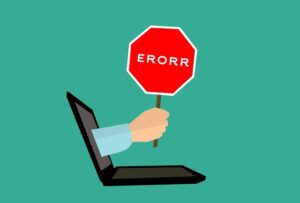
As tax filing season unfolds, many taxpayers are taking the bull by the horns and doing their own taxes. Though it may seem like good news for the individual taxpayer, it’s important to watch out for common tax filing mistakes. Tax preparation software makes some errors like addition and subtraction blunders less likely, but even the best software cannot eliminate all potential problems and human error.
If you are getting ready to file your tax return, be sure to take a second (or third) look before you hit send. Keeping a close eye out for these common tax filing mistakes is the best way to ensure the IRS does not come knocking at your door.
Note: If you do get in trouble with the IRS and they claim you owe $10,o00 or more, reach out to our tax resolution firm and we’ll schedule a free, no-obligation confidential consultation to explain your options in full to permanently resolve your tax problem Get help from Ron Friedman, CPA.
That said, lets jump into the 4 common tax return mistakes that could land you in tax trouble.
#1. Transposed Numbers
If the 1099 you receive shows $6,300 in income and you inadvertently enter $3,600 instead, the IRS may see this as a tax dodge instead of an innocent mistake. At best, transposing numbers will slow down your refund and raise a red flag with the tax agency. At worst, it could trigger an audit or further examination of your entire return.
IRS computers are very good at comparing the figures taxpayers report to the ones they receive independently from banks, brokerage firms and other agencies. Be sure to double-check and verify every number you enter and make sure it is right. Your tax software can tell you if your numbers do not add up, but they cannot catch transposed figures.
#2. Misspelled Names
It is easy to misspell a name or transpose a Social Security number when entering dependent information, but doing so could cause real problems with your return. Be sure to double-check the names, ages and Social Security numbers of all your children before sending your return to the IRS.
Do not assume that all of that information will be transferred from a prior year return.
#3. Missing Social Security Numbers
It is easy to forget this vital piece of information, and doing so could delay your return and cause long-lasting problems. You may assume that your tax prep software will automatically enter your Social Security number, but that does not always happen.
Be sure to give your Social Security number (and that of your spouse) one last look before filing your return. That last minute check could save you a world of trouble later on.
#4. Not Reporting All Your Income or Taking Too Many Deductions
The IRS will likely get notified of income you received throughout the year, and it doesn’t just include your W2 wages. It’s important to keep track of all your income and report it to the IRS correctly to avoid any problems.
It can also be tempting to click a few extra boxes and input a few made up numbers as deductions to bring your tax liability down. DO NOT DO THIS. Just because the software lets you do this, doesn’t mean you should.
It’s not the software’s job to tell you whether or not you should be taking that extra deduction or write off, it’s the taxpayer’s job to be honest and file their tax returns correctly.
NEED TAX RELIEF?
If you made a mistake on your tax return and end up on the receiving end of an IRS notice, or if you have years of unfiled tax returns, reach out to our office. We’ll schedule a no-obligation confidential consultation to explain your options to permanently resolve your tax problem Get help from Ron Friedman, CPA.







